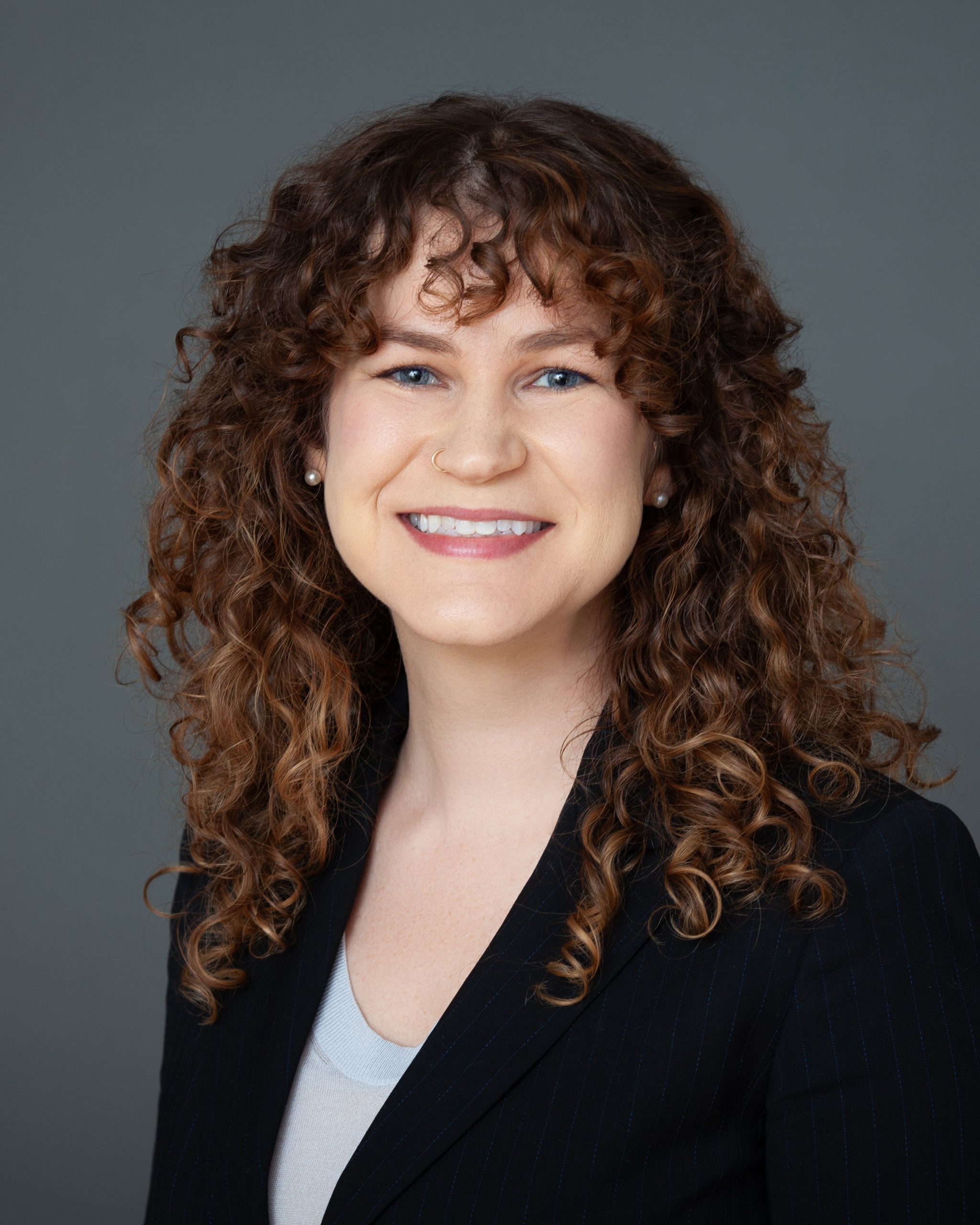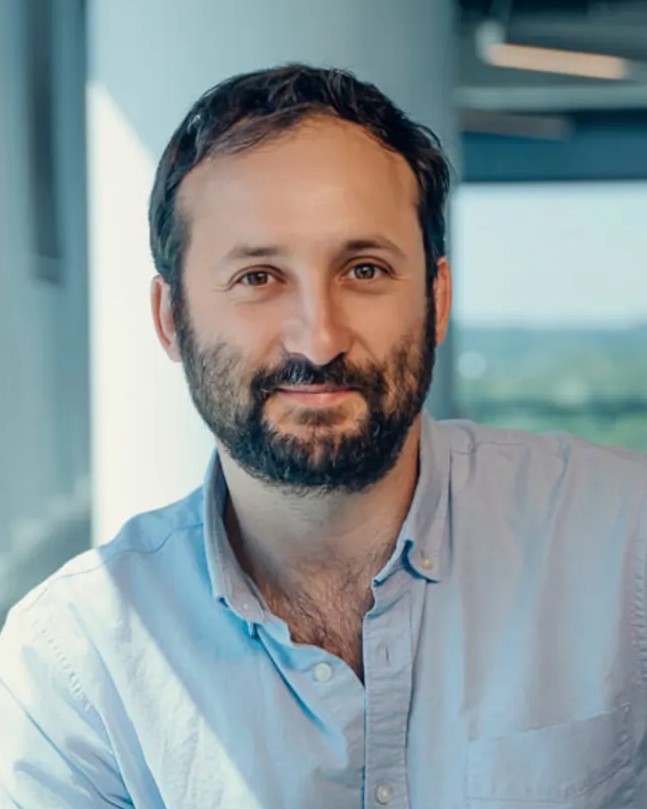CNS 2026 | Young Investigator Award
Congratulations to Monica Rosenberg and Samuel D. McDougle for being awarded the 2026 Young Investigator Award. We look forward to hearing their award lectures at CNS 2026 in Vancouver, B.C., Canada!
Neural signatures of sustained attention across time scales and individuals
Monica Rosenberg, Ph.D.
University of Chicago
Monday, March 9, 2026, 1:30 - 2:00 pm, Salon EF
03/9/2026 1:30 PM
03/9/2026 2:00 PM
America/Los_Angeles
CNS 2026 | Young Investigator Award Lecture 1 - Neural Signatures of Sustained Attention Across Time Scales and Individuals, Monica Rosenberg, Ph.D.
Salon EFThe Young Investigator Award Lecture titled 'Neural Signatures of Sustained Attention Across Time Scales and Individuals' will be held in person at the CNS 2026 Annual Meeting in Vancouver at the JW Marriott Parq Vancouver located at 39 Smithe St, Vancouver, BC V6B 0R3, Canada
Maintaining focus is critical for goal-directed behavior, yet sustained attention is inherently dynamic—fluctuating across seconds, waning across minutes to hours, and developing across childhood and adolescence. How and why does attention vary over time and across individuals? I will show that large-scale functional brain networks can serve as generalizable neural signatures of sustained attention, predicting individual differences and within-person changes when measured during tasks, narratives, and rest. Moreover, I will argue that the primary utility of such brain-based predictive models lies in revealing how attention operates and interacts with broader cognitive processes, offering a framework for understanding variability in cognition across individuals and over time.
Generalized prediction errors in the human cerebellum
Samuel D. McDougle, Ph.D.
Department of Psychology, Yale University
Monday, March 9, 2026, 2:00 - 2:30 pm, Salon EF
03/9/2026 2:00 PM
03/9/2026 2:30 PM
America/Los_Angeles
CNS 2026 | Young Investigator Award Lecture 2 - Generalized Prediction Errors in the Human Cerebellum by Samuel D. McDougle, PhD.
Salon EFThe Young Investigator Award Lecture titled 'Generalized Prediction Errors in the Human Cerebellum' will be held in person at the CNS 2026 Annual Meeting in Vancouver at the JW Marriott Parq Vancouver located at 39 Smithe St, Vancouver, BC V6B 0R3, Canada
Your cerebellum contains more neurons and uses more energy than the rest of the brain combined. Evolutionarily, the cerebellum expanded hand-in-hand with the expansion of our species’ cerebral cortex. It may not be surprising, then, that in addition to the cerebellum’s well-known role in sensorimotor behavior, this remarkable structure is implicated in language, working memory, cognitive control, and social cognition. One enduring mystery, however, is how specifically the cerebellum supports cognition. My lab has begun to explore the idea that cerebellar contributions to nonmotor tasks may involve the same prediction and error-based learning principles observed in cerebellar sensorimotor computations. Our recent neuroimaging results point to nonmotor prediction errors in ‘cognitive’ regions of the human cerebellar cortex. We observe these signals in both reinforcement learning and statistical learning contexts. Moreover, these signals appear to share constraints with cerebellar sensorimotor computations, including a preference for subsecond temporal intervals between associated events. Our findings suggest that the cerebellum contributes to rapid coordination of cognitive representations, directly echoing its role in motor control. These results expand our understanding of the computational functions of the human cerebellum and blur the lines between the sensorimotor and cognitive domains.
About the YIA Award
The purpose of the Young Investigator Award is to recognize outstanding contributions by scientists early in their career. Two awardees are named by the Awards Committee, and are honored at the CNS Annual meeting.
Previous Winners
2025Emily S. Finn, Dartmouth College |
2024Peter Kok, University College London |
|
2023Anna Schapiro, Ph.D. University of Pennsylvania |
2022Oriel FeldmanHall, Brown University |
|
2021Anne Collins, UC Berkeley |
2020Catherine Hartley, New York University |
|
2019Muireann Irish, The University of Sydney, Australia |
2018Morgan Barense, University of Toronto |
|
2017Leah Somerville, Ph.D., Harvard University |
2016Adriana Galvan, UCLA |
|
2015Donna Rose Addis, Ph.D., University of Auckland, NZ |
2014Daphna Shohamy, Ph.D. , Columbia University |
|
2013Uta Noppeney, Ph.D., University of Birmingham, UK |
2012Adam Aron, Ph.D., University of California San Diego Roshan Cools, Ph.D., Donders Institute for Brain, Cognition and Behaviour |
|
2011Michael J. Frank, Ph.D., Brown University |
2010Kara Federmeier, University of Illinois |
|
2009Lila Davachi, New York University |
2008Charan Ranganath, University of California Davis |
|
2007Silvia A. Bunge, University of California |
2006Frank Tong, Vanderbilt University |
|
2005Sabine Kastner, Princeton University |
2004Anthony Wagner, Stanford University |
|
2003Roberto Cabeza, Duke University |
2002Isabel Gauthier, Vanderbilt University |

March 7 – 10, 2026

